An Odd Cloud Rolls Toward Hillary Clinton’s Campaign: The Case of an Arrested Romanian Hacker
New information squeezed out of "Guccifer" by U.S. authorities could reignite the email controversy as the national election nears. Already, his disclosures are plaguing the Democratic front-runner.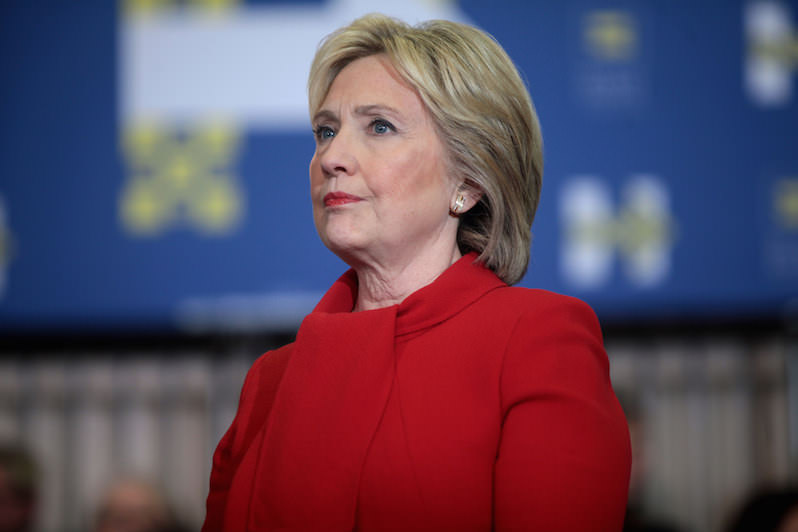 Hillary Clinton. Gage Skidmore / Flickr (CC-BY-SA)
Hillary Clinton. Gage Skidmore / Flickr (CC-BY-SA)
Although the subject of Hillary Clinton’s emails did not come up during Thursday’s presidential debate, the heated controversy over the Democratic front-runner’s use of a private Internet server during her four-year stint as secretary of state is far from over.
Indeed, if recent reports published largely (though not exclusively) by right-wing news media have any credibility, the controversy is about to re-erupt with redoubled fury. Some on the right are even predicting that Clinton will soon be indicted.
The reason for the right’s breathless anticipation of Clinton’s demise is that the mysterious, eccentric and paranoid Romanian computer hacker who broke the email story back in 2013 was extradited to the United States last month pursuant to federal felony charges filed against him in 2014. The theory is that prosecutors will squeeze the hacker for incriminating evidence against Clinton. A trial date in the hacker’s case has been set for September, smack dab in the middle of the general election campaign, in federal district court in Alexandria, Va.
The hacker is one Marcel Lehel Lazar, who traffics under the nom de plume of “Guccifer”—a portmanteau or linguistic hybrid that by his own description combines the “style” of Gucci and the “light” of Lucifer. Guccifer believes the international economy is controlled by a cabal of the “Council of the Illuminati” and well-placed “radical” Jews. His self-appointed mission as a cybersleuth is to expose the Illuminati’s machinations to create a “new world order” in each of its nefarious aspects.
If all that sounds more than a tad loopy, rest assured that it is. But as zany as Guccifer’s weltanschauung may be, he’s also a devastatingly talented cyberstalker, and that’s bad news for Clinton and her backers.
So exactly who is Guccifer, and how did he come to play a central role in Clinton’s email crisis?
Now in his mid-40s, Guccifer lived with his wife and daughter in the village of Sambateni, Romania, until his conviction and ultimate imprisonment in his native land on hacking charges in 2014. An autodidact whose formal education ended with high school, he struggled with long-term unemployment, scrambling for occasional work as a taxi driver and a paint salesman, according to his statements in an exclusive interview published by the website Pando.com in March 2015.
Initially, as illustrated by both Pando and an earlier story written by New York Times reporter Andrew Higgins, Guccifer appears to have been motivated primarily by pedestrian desires for fame and an urge for self-promotion. His immediate goal was to expose and embarrass others who had achieved the notoriety he craved, but never to extort money.
He reportedly first took to hacking in 2010, equipped only with an old home computer and a cellphone. He has told Pando and the Times that his methods were, in essence, old school and low tech. Instead of using sophisticated algorithms, he would read articles and biographies about his targets and then painstakingly guess their email passwords until he gained access to their electronically stored information.
Starting small, his earliest victims were Romanian entertainers and soccer stars. But local authorities soon caught on to him, and a year later he was arrested. After pleading guilty to cybercrimes, he was given a suspended jail sentence on the condition that he go straight.
But he didn’t. As explained in the Pando exclusive, once released from custody, Guccifer trained his hacking sights on ever-bigger public figures. This time, using a proxy server based in Russia to hide his tracks, he not only began breaking into the email accounts of Romanian politicians, but he gained access to the emails and websites of such international celebrities as actor/comedian Steve Martin, “Downton Abbey” writer Julian Fellowes and journalist Carl Bernstein; business leaders like MetLife CEO Steven Kandarian; and a trove of former American government officials, such as ex-Nixon aide John Dean and Reagan-era White House chief of staff Ken Duberstein.
Guccifer’s exploits were exposed in the United States in February 2013, when The Smoking Gun website—one of a handful of Internet outlets, along with Gawker and Russia Today, that he frequently contacted to gloat about his triumphs and supply with documentation—reported that he had posted photos and correspondence from the email accounts of family members of former President George W. Bush. Among the released items were self-portraits of Bush taking a bath and standing in the shower.
Guccifer’s handiwork might have been considered little more than a series of annoying pranks had he not also turned his attention to former Secretary of State Colin Powell and longtime Clinton aide and confidant Sidney Blumenthal.
In March 2013, he managed to hack into Powell’s Facebook account, defacing it with phony status updates that insulted Bush and declaring that Powell, Bush and the Rockefellers would burn in hell. He also succeeded in compromising Powell’s AOL account, obtaining financial information and email exchanges with former government personnel.
But it was the breach of Blumenthal’s AOL email account, also in March 2013, that netted the biggest headlines for Guccifer and that now poses the greatest dangers to Clinton’s presidential ambitions.The Smoking Gun revealed the Blumenthal hack on March 15, 2013, reporting that Guccifer had obtained emails Blumenthal had sent to Clinton during her tenure at the State Department. Some of the missives included attachments containing confidential intelligence memos Blumenthal had written on Libya and Benghazi, Syria and Bashir Assad, the Muslim Brotherhood and Egypt, Algeria and other foreign-policy topics and issues.
Five days after the Smoking Gun disclosure, Russia Today published the Blumenthal memos in their entirety.
At the time Blumenthal wrote and forwarded the memos, he was working as a full-time employee for the Clinton Foundation, pulling down a monthly salary of $10,000, according to Politico chief investigative reporter Ken Vogel. Anyone wishing to sort through and study them can do so by accessing the comprehensive searchable archive of emails sent to and from Clinton’s private server that has been published by WikiLeaks.
Although the Blumenthal memos appear to have been unsolicited by Clinton, there can be no question that she appreciated and valued them in her role as the nation’s top diplomat. For example, a day after receiving a Blumenthal memo on Egypt and the Muslim Brotherhood in August 2012, she forwarded it to State Department Director of Policy Planning Jake Sullivan, with the notation: “Best info yet. Let’s discuss before you forward [to others] this morning.”
Guccifer continued to stalk former U.S. policymakers well into 2013, breaching the personal email ledgers of one-time National Intelligence Council Chairman Christopher Kojm and ex-Defense Intelligence Agency official Roy Apseloff, among others.
Romanian authorities rearrested Guccifer in January 2014 for spying on national officials, including the head of the country’s intelligence service. He was convicted and sent to a maximum security prison.
In June 2014, a federal grand jury in Virginia returned a nine-count indictment against Guccifer, charging him with wire fraud, unauthorized access of a protected computer, aggravated identity theft, cyberstalking and obstruction of justice for accessing the email accounts of Powell and Blumenthal (who are referred to anonymously in the charging document as victims 3 and 5, respectively), as well as other violations. Soon thereafter, the U.S. initiated discussions with Romania aimed at securing his extradition—an effort that finally paid off late last month.
Remarkably, although Clinton installed her private email server in January 2009, a week before she was confirmed as secretary of state, the fact that she exclusively used private email in violation of State Department guidelines to conduct official business was not widely known until The New York Times ran a story about her server on March 2, 2015. Since then, speculation has been rampant that Clinton may have run afoul of several federal criminal statutes, not only for maintaining the server rather than using official government channels of communication, but for deleting over 30,000 emails that she and her staff unilaterally deemed purely personal before turning over 31,000 emails to the State Department.
The Justice Department has been investigating the email controversy at least since last July, and in February, the FBI publicly confirmed that it, too, had joined the probe. Earlier this month, FBI Director James Comey announced that the investigation was continuing and that it would be completed “well and promptly.”
It also has been widely reported that Clinton and several of her aides will be interviewed in the near future as part of the FBI/Justice Department probe. Clinton aide Bryan Pagliano, who helped set up the server, has been granted immunity by the Justice Department after refusing to testify before the Senate Judiciary Committee. The pressure and suspense, thus, are building.
Those calling for Clinton to be prosecuted tend to focus on two provisions of federal law—sections 1924 and 793 of Title 18 of the United States Code—dealing, respectively, with the unauthorized removal and retention of classified material, and the improper gathering, transmission or loss of information relating to the national defense. In an April 11 interview on the Fox Business Network, former Attorney General Michael Mukasey all but accused Clinton of committing a felony.
Others, who contend that prosecution is unlikely, including Clinton herself, focus on the fact that previous secretaries of state, such as Powell, also used private email to conduct official business. More importantly, Clinton and her defenders argue that no crimes were committed because the emails contained no information that was classified at the time they were sent or received.
In a detailed analysis published last week by Politico, White House correspondent Josh Gerstein staked out something of a middle ground in the roiling debate. After reviewing dozens of recent federal investigations involving alleged mishandling of classified records—including the 2015 prosecution of Gen. David Petraeus for providing top-secret material to a woman who was his biographer and mistress—Gerstein concluded there will be no indictment against Clinton unless prosecutors are convinced she acted with the intent to violate classification rules. In addition, Gerstein wrote, prosecutors will consider whether Clinton committed other aggravating acts beyond rule infractions, such as lying under oath or endangering national security.
Whether Guccifer, now that he is stateside and awaiting his day in the dock, can provide the missing elements and incentives needed for prosecuting Clinton is, as former Defense Secretary Donald Rumsfeld might put it, a gigantic and lingering “known unknown.” In his Pando interview, Guccifer said he anticipated collaborating with American intelligence agencies “when the day is right.” He also boasted that he had “a lot more [unreleased] material saved in the cloud.”
That material, if in fact it exists, may not prove sufficient to force Clinton to swap her trademark pantsuits for a set of prison jumpers. But the flood of disclosures Guccifer has already unleashed will continue to dog Clinton until Election Day, calling her values, character, judgment and fitness for office into constant question.
Your support matters…Independent journalism is under threat and overshadowed by heavily funded mainstream media.
You can help level the playing field. Become a member.
Your tax-deductible contribution keeps us digging beneath the headlines to give you thought-provoking, investigative reporting and analysis that unearths what's really happening- without compromise.
Give today to support our courageous, independent journalists.
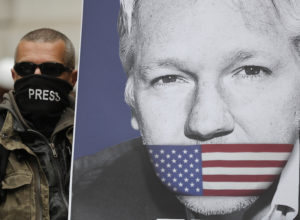
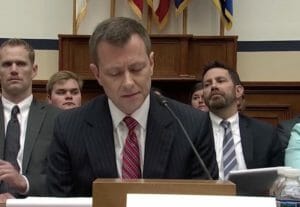
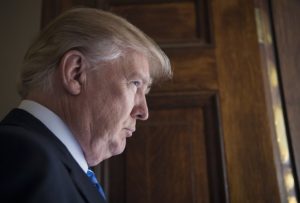
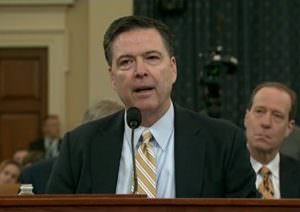
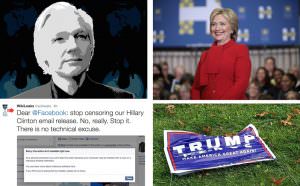
You need to be a supporter to comment.
There are currently no responses to this article.
Be the first to respond.